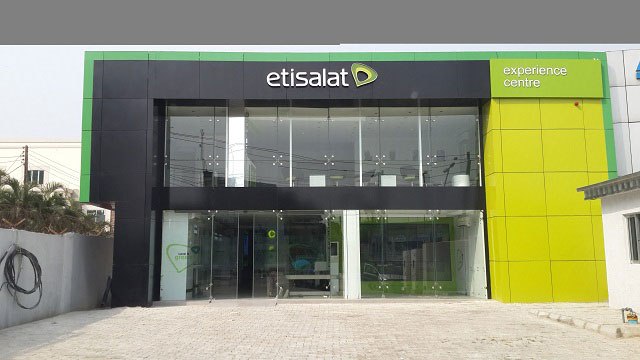
Etisalat, Nigeria’s fourth largest mobile operator is enmeshed in a debt crisis that could lead to a change of its ownership. PREMIUM TIMES has extensively reported on the debt crisis with the firm and the regulators all reacting and assuring subscribers it would not affect operations.
Below are 17 simple ways to understand the Etisalat crisis.
1. Etisalat Nigeria is Nigeria’s fourth largest telecommunication network operator with over 21 million subscribers and controls about 12.9 per cent of the country’s telecom market share;
2. Etisalat commenced business in Nigeria in 2009, after acquiring the unified access license, including a mobile license and spectrum in the GSM 1800 and 900 MHZ bands from the Nigerian Communications Commission in January 2007;
3. Etisalat is owned by three shareholders – Emirates Telecommunications Group Company (Etisalat Group – owns 40 per cent); United Arab Emirates Sovereign Wealth Fund through Mubadala Development Company, Abu Dhabi (45 per cent), and Myacinth (15 per cent), through Emerging Markets Telecommunications Services, EMTS Holding BV, owned by former United Bank for Africa, UBA, Chairman, Hakeem Bello-Osagie.
4. Etisalat obtained a $1.2 billion (N377.4 billion) syndicated loan in 2013, from a consortium of 13 Nigerian banks, including Access Bank, Zenith Bank Plc, Guaranty Trust Bank Plc, First Bank Limited, Fidelity Bank Plc, First City Monument Bank (FCMB), Stanbic IBTC, Ecobank, United Bank for Africa (UBA) Plc and Union Bank of Nigeria Plc;
5. The loan, which involved a foreign-backed guaranteed bond, was to finance a major network rehabilitation, upgrade and expansion of its operational base in Nigeria;
6. About $600 million (N115billion) of the total loan package was secured with asset by Etisalat, while Etisalat Group of UAE, the parent company, pledged shares to the tune of $235 million;
7. Zenith Bank, Guaranty Trust Bank and Access Bank have the top three exposures of the total loan – N80 billion, N42 billion and N40 billion respectively;
8. So far, Etisalat Nigeria has paid about half of the initial loan (about N504 billion), according to official figures, with total outstanding sum of about $574 million, consisting $227million and N113billion (if the Naira portion is converted to U.S. Dollars)
9. Etisalat failed to meet its agreed debt servicing obligations with the banks since 2016;
10. The banks reported the matter to telecoms sector regulator, the Nigerian Communications Commission, NCC, and financial sector regulator, Central Bank of Nigeria, CBN, demanding to recover the loan or take-over the company;
11. On March 10, 2017, the intervention of the NCC and CBN succeeded in persuading the banks to suspend their threat to take-over Etisalat, after all parties agreed to restructure the loan, with May 31, 2017 as the new repayment deadline;
12. Again, Etisalat failed to meet the deadline. Further negotiations later collapsed, resulting in the banks issuing a final defaulting note and enforcement notice on June 9, 2017 to Etisalat, to commence the process to take-over Etisalat after it reneged on the agreed repayment deadline, effective June 15, 2017;
13. The notice requested EMTS Holding BV, a special purpose vehicle established in Netherlands, to transfer 100 per cent of its shares to United Capital Trustees Limited, legal trustees of the banks by June 15, 2017.
14. An extended deadline was given for the completion of share transfer by 5 pm on Friday, June 23, 2017.
15. Following the collapse of negotiations on the debt with the banks, Mubadala Development Company, the majority shareholder in the company, dropped a hint on June 15, 2017, of its decision to withdraw its shareholding from the company;
16. Mubadala’s decision was later announced on June 20, 2017, when Emirates Telecommunications Group Company, its parent company, disclosed in a filing with the Abu Dhabi Securities Exchange in Abu Dhabi, United Arab Emirate;
17. NCC has warned banks that the Nigerian Communications Act (NCA) says issuance of a telephone mobile license is personal to the licensee and not transferable to a third party without the written approval of the commission.
END

Be the first to comment